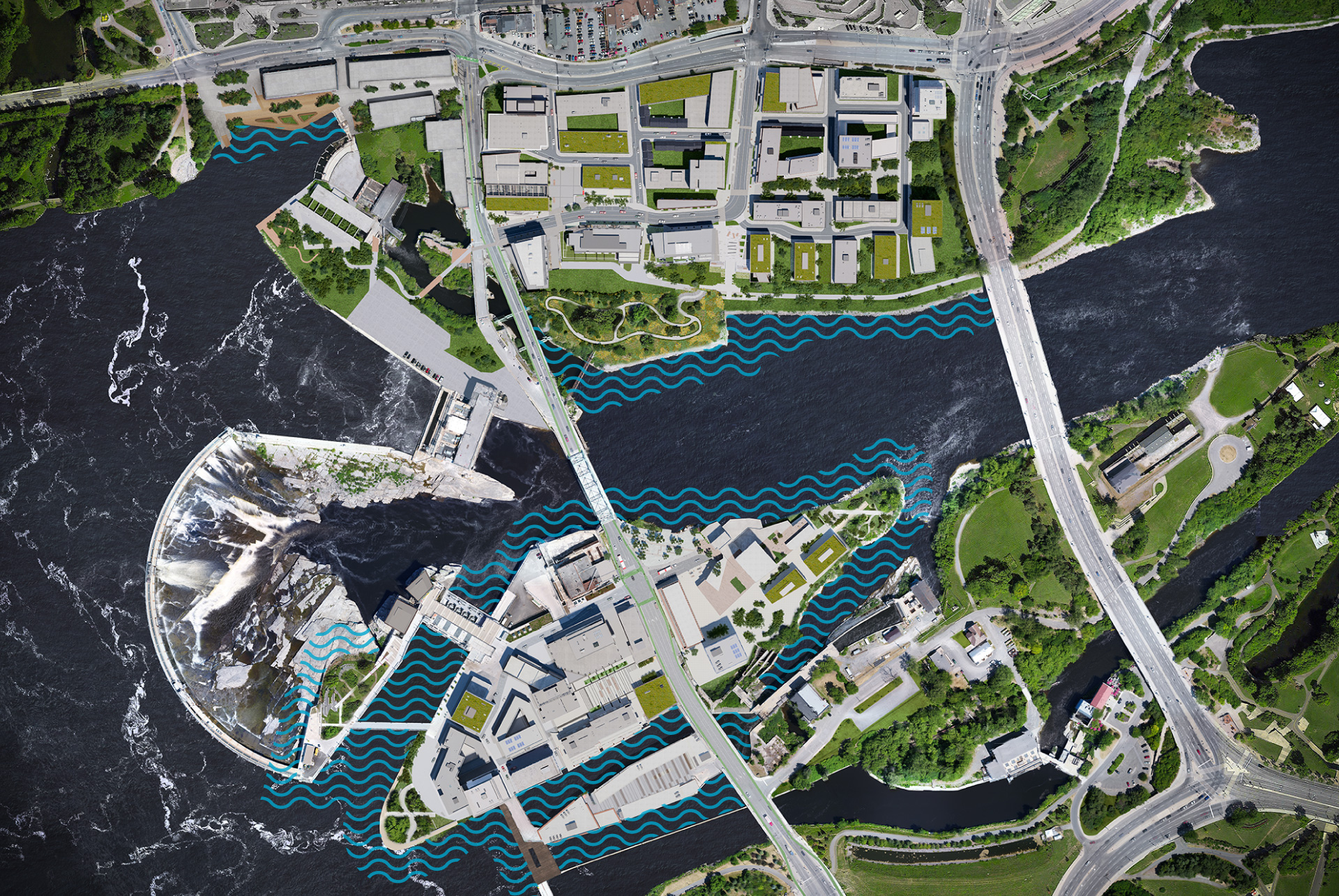Not often do communities truly give back to the planet, but Zibi in Ottawa, is doubling down. It’s going carbon-neutral.
The town is a joint creation of Dream Unlimited, Dream Impact Trust, and Theia Partners.
The community is a 34-acre master-planned area. It was designed to combine Canada’s history with the prospects of city planning and sustainable living.
Zibi will be alongside the Ottawa River and home to more than 5,000 people and 6,000 jobs. Once it is in full operation, it will rely on the energy recovered by steam from Kruger Products’ Gatineau Plant. The plant will heat the city and the river will cool. This will ultimately provide zero-carbon for all future residents.
“Zibi’s district energy system is a testament to the power of connection – thought, partnership, innovation, and a desire to create a future far more sustainable than the past,” said Bryce Conrad, president and CEO of Hydro Ottawa.
The Layout of Zibi
Zibi will be a city within a city. The city consists of distinct areas with distinct cultures.
They believe integrated cities have one thing in common: “seamless connections.”
The Zibi Master Plan designed a system of walking trails, cycling networks, and multiple transit options. Their Chaudière Crossing will help citizens arrive at their planned destination without issues. The neighborhoods are extremely walkable and cyclist residents have new bike paths out their doorsteps.
One Planet Living
The Zibi community will be the first in Canada following the guidance of a Bio-Regional One Planet Living Plan.
The One Planet Living Plan is a vision of a world where people can live happily within the Earth’s resources. “So far, there are 595,000 people around the world living in, working at, or visiting organizations and communities with a deep commitment to One Planet Living.”
“The One Planet Living framework is designed to support you to create a ‘One Planet Action Plan’ that acts as a route map towards a more sustainable future for your organization,” it said. “It comprises ten simple principles to cover all aspects of social, environmental and economic sustainability and detailed goals and guidance documents. Providing advice and ideas on the goals, actions, targets, and indicators one could set for their ‘One Planet Action Plan’ – this is the plan to achieve One Planet Living.”
The ten principles of implementing One Planet Living are “health and happiness, equity and local economy, culture and community, land and nature, sustainable water, local and sustainable food, travel and transport, materials and products, zero waste, and zero-carbon energy.”
Government Interest
A recent Coast-to-Coast Affordable Housing Innovations webinar highlighted six new projects meant to help both the community and the environment.
“Repeatability is the goal,” said Daniel Pearl, co-founding partner of L’Oeuf Architectural. “Flexibility and building to enable easy monitoring and reporting, to ensure others can learn lessons from features as they are high-performance.”
Pearl said the hope is far the goal to enable others to follow in their footsteps.










